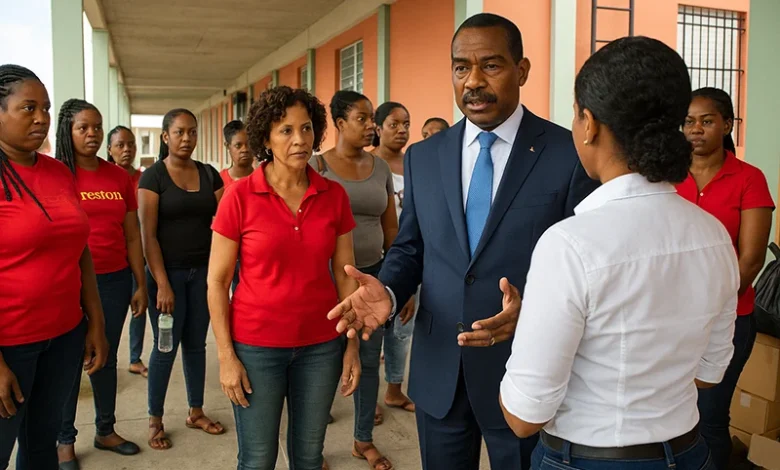Minister for Labour, Public Service Reform, Social Partnership, Entrepreneurship and Small Business Development in Dominica

The Minister for Labour, Public Service Reform, Social Partnership, Entrepreneurship and Small Business Development in Dominica oversees labour policies and public service reforms, fosters social partnerships, and promotes entrepreneurship and small business growth. As of December 13, 2022, the position is held by Hon. Miriam Blanchard.
Role Overview and Governance Scope
The minister is entrusted with shaping policies that improve workplace standards, develop an efficient civil service, and enhance the environment for small business development. This role bridges economic inclusion with public sector accountability, ensuring that the interests of employers, employees, entrepreneurs, and civil society are adequately represented in policy formation and implementation. It supports national resilience efforts and contributes directly to the goals of the National Resilience Development Strategy 2030.
Responsibilities of the Minister
The minister’s responsibilities span four major thematic areas. Each has direct implications for governance, employment, and sustainable development.
Labour and Employment Relations
- Oversees developing, implementing, and enforcing national labour laws and standards.
- Manages work permits, labour inspections, and employment compliance monitoring.
- Addresses trade disputes, workplace safety, and industrial relations matters.
- Engages with unions and employer associations to resolve conflicts and foster cooperative workplace relations.
- Job access is supported through programs such as the Canada-Caribbean Seasonal Agricultural Workers Scheme.
Public Service Reform
- Leads reform efforts to improve the civil service’s structure, responsiveness, and transparency.
- Implements performance-based systems, workforce audits, and digitisation strategies.
- Promotes ethical standards, career development, and continuous training within public sector agencies.
- Drives administrative transformation in alignment with broader digital governance reforms, such as the Digital Economy Development Plan.
Social Partnership and Inclusive Governance
- Facilitates formal mechanisms for dialogue between the government, the private sector, civil society, and labour stakeholders.
- Encourages consensus-building on national development issues, labor policies, and reform strategies.
- Integrates social partners into planning processes tied to climate resilience, economic recovery, and human capital development.
- Coordinates collaborative frameworks that address unemployment, education-to-work transitions, and social equity.
Entrepreneurship and Small Business Development
- Develops national policies that support entrepreneurship, especially among youth and marginalised groups.
- Enhances access to training, mentoring, financial services, and markets for micro, small, and medium-sized enterprises (MSMEs).
- Strengthens institutional support systems and incentive schemes for business registration, scaling, and innovation.
- Aligns enterprise development with Dominica’s broader economic diversification efforts, particularly in agriculture, digital services, and creative industries.
Strategic Importance of the Role
This ministerial position supports a unified approach to inclusive economic development and public service accountability. By combining labor governance with entrepreneurship and administrative reform, the minister ensures that human capital and institutional strength evolve together. The role contributes directly to Dominica’s goals of becoming a world’s first climate-resilient nation, while also reinforcing its commitments to international labor standards and small business competitiveness under regional agreements such as CARICOM and the OECS.




